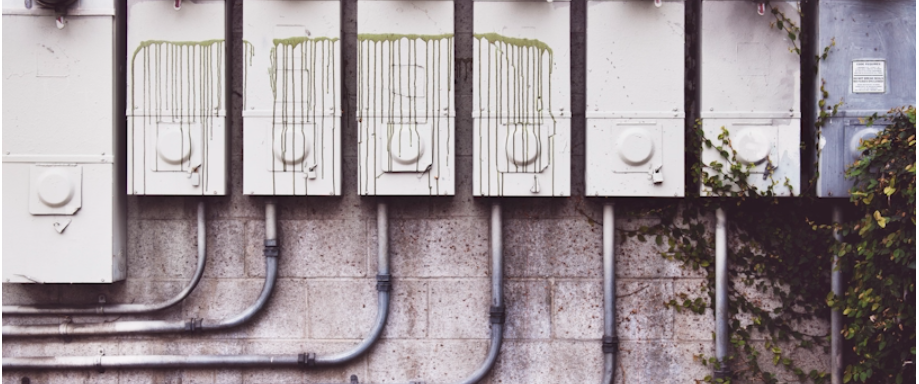Common Applications of Electrical Fiberglass Boxes Across Various Industries
6/2/20244 min read


Introduction to Electrical Fiberglass Boxes
Electrical fiberglass boxes, often referred to as fiberglass enclosures, are integral components in various electrical and electronic systems. These boxes are primarily composed of fiberglass-reinforced polyester, a material chosen for its exceptional properties. The key features of electrical fiberglass boxes include their remarkable strength, durability, and resistance to environmental factors such as corrosion and UV radiation. Unlike metal or plastic alternatives, fiberglass is non-conductive, which enhances its safety profile in electrical applications.
The choice of fiberglass over metal or plastic is driven by several critical factors. Fiberglass offers superior mechanical strength, ensuring that the boxes can withstand physical impacts without deforming or breaking. Durability is another significant advantage, as these boxes maintain their integrity over prolonged periods, even in harsh conditions. Corrosion resistance is particularly important in environments prone to moisture or chemical exposure, where metal enclosures may deteriorate. Additionally, the non-conductive nature of fiberglass eliminates the risk of electrical faults and enhances the overall safety of the electrical systems.
Standard specifications for electrical fiberglass boxes include a range of sizes, shapes, and configurations to meet diverse industry needs. These boxes can be customized with various features such as hinged or screw-on covers, gasket seals for enhanced protection, and mounting options for easy installation. Market variations include weatherproof, explosion-proof, and UV-resistant models, each tailored to specific environmental and operational requirements. Understanding these fundamental aspects of electrical fiberglass boxes sets the stage for exploring their applications across different industries, showcasing their versatility and indispensability in modern electrical infrastructure.
Applications in the Commercial Sector
Electrical fiberglass boxes play a crucial role in the commercial sector, serving a variety of functions in office buildings, retail spaces, and other commercial properties. These boxes, known for their robust and versatile nature, are increasingly preferred over traditional materials due to their unique advantages.
One of the primary benefits of electrical fiberglass boxes is their ease of installation. Designed to be lightweight, these boxes simplify the installation process, reducing labor costs and time. This efficiency is particularly valuable in commercial settings where minimizing downtime is essential. Additionally, fiberglass boxes can be easily mounted on walls or ceilings, providing flexible installation options that accommodate various architectural designs.
Maintenance is another area where electrical fiberglass boxes excel. Their resistance to corrosion and rust makes them ideal for environments where moisture or chemicals are present. In office buildings and retail spaces, where maintaining a clean and presentable appearance is critical, fiberglass boxes offer a low-maintenance solution that ensures long-term durability. Moreover, their ability to withstand extreme temperatures and UV radiation further enhances their longevity, making them a cost-effective choice for commercial properties.
Protection against environmental factors is a significant advantage of using electrical fiberglass boxes in commercial applications. These boxes provide a secure enclosure for electrical connections, safeguarding them from dust, dirt, and other contaminants. This is particularly beneficial in commercial settings where high foot traffic and operational activities can expose electrical systems to potential hazards. By ensuring the integrity of electrical connections, fiberglass boxes contribute to the overall safety and reliability of commercial properties.
Real-world examples illustrate the practical benefits of electrical fiberglass boxes in commercial applications. For instance, in a recent upgrade of a retail chain's stores, the installation of fiberglass electrical boxes resulted in reduced installation times and lower maintenance costs. Similarly, an office complex reported enhanced safety and performance of their electrical systems after switching to fiberglass boxes, highlighting their effectiveness in protecting against environmental factors.
In conclusion, electrical fiberglass boxes offer numerous advantages in the commercial sector, from ease of installation and maintenance to superior protection against environmental factors. Their adoption in office buildings, retail spaces, and other commercial properties underscores their value in enhancing operational efficiency and safety.
Industrial and Hazardous Environment Uses
Electrical fiberglass boxes are indispensable in industrial and hazardous environments due to their unique properties and ability to withstand extreme conditions. These boxes find extensive applications in factories, chemical plants, and other industrial settings where exposure to harsh chemicals, extreme temperatures, and mechanical stress is a common occurrence. The inherent characteristics of fiberglass make it an ideal material for such challenging environments.
One of the primary attributes of electrical fiberglass boxes is their remarkable chemical resistance. In chemical plants, where corrosive substances are frequently present, traditional materials like metal can deteriorate rapidly, leading to potential safety hazards and operational inefficiencies. Fiberglass, however, is impervious to a wide range of chemicals, ensuring the longevity and reliability of electrical enclosures in these settings.
Thermal stability is another critical factor that makes fiberglass boxes suitable for industrial applications. In environments like oil and gas facilities or mining operations, temperatures can fluctuate dramatically. Fiberglass maintains its structural integrity and performance even under extreme thermal conditions, making it a reliable choice for protecting electrical components from temperature-induced damages.
Furthermore, the impact resistance of fiberglass boxes is a significant advantage in manufacturing plants and other industrial arenas where heavy machinery and equipment are in constant use. These boxes can withstand substantial mechanical stress, reducing the risk of damage to the electrical systems housed within them. This robustness ensures continuous operation and minimizes downtime, which is crucial in maintaining productivity and safety.
Industries such as oil and gas, mining, and manufacturing particularly benefit from using electrical fiberglass boxes. In the oil and gas sector, the need for durable and reliable electrical enclosures is paramount due to the harsh offshore and onshore environments. Similarly, in mining, the rugged conditions demand materials that can endure significant wear and tear. Manufacturing plants, with their complex machinery and potential for accidental impacts, also rely on the sturdy nature of fiberglass boxes.
In summary, the application of electrical fiberglass boxes in industrial and hazardous environments underscores their vital role in ensuring safety, reliability, and efficiency in various high-risk industries. Their chemical resistance, thermal stability, and impact resistance make them a superior choice in settings where traditional materials might fail.
